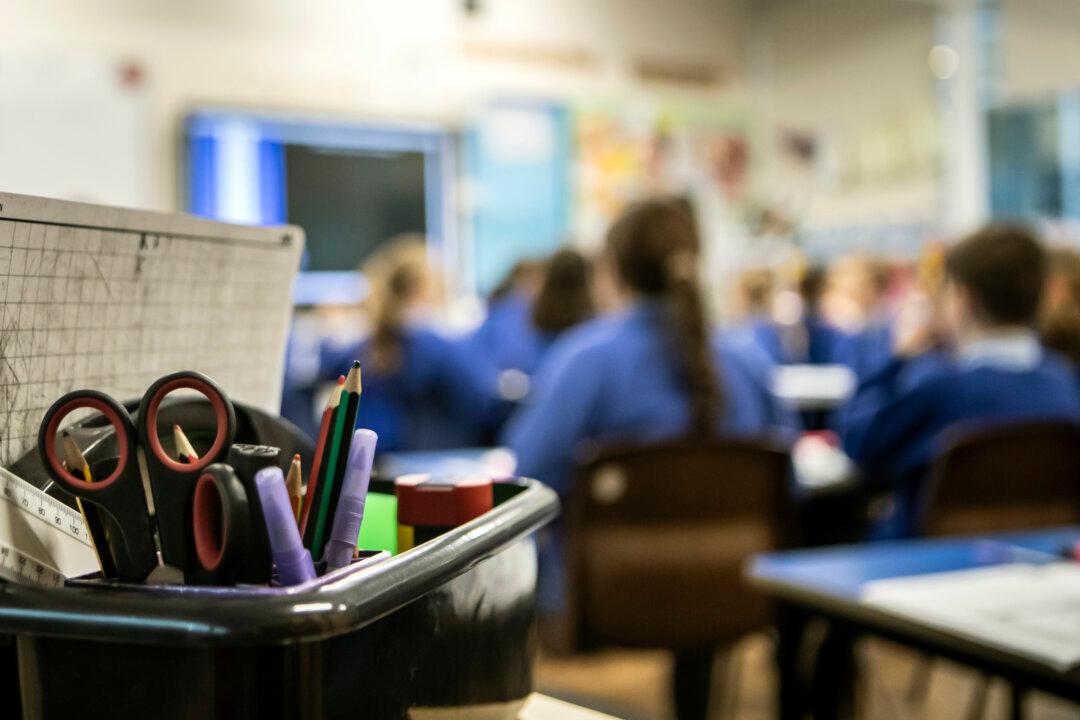A report suggests that the lasting effects of COVID-19 lockdowns and pandemic-era messaging continue to impact school absences, which remain above pre-2019 levels.
It said that while children have always missed school legitimately for illness, school staff said that there were indications that “pandemic-era messaging” about preventing the spread of infection had “changed mindsets” around illness and school attendance.
Pupils had “expressed a belief that staying home when contagious was not just about personal wellbeing but also a responsibility to protect others from infection,” the report said.
Since the pandemic, schools said they also observed a lowered threshold for taking days off sick, finding that pupils are likely to stay home for “mild illnesses,” like coughs and colds, whereas previously they would have come to school with those symptoms.
The study was based on interviews with staff and pupils from nine state secondary schools and includes responses from NFER’s survey answered by more than 600 secondary teachers and leaders.
Lockdown Impact
The change of work and home culture during the lockdowns—where schools and many businesses were closed—has also impacted attendance.Teachers noted that post-pandemic, with many parents still working remotely, it is now easier for children to stay at home when unwell, whereas in the past, they may have attended school sick because their parents had to be in the office.
With families spending so much time together during the lockdowns, school staff said they observed that this has led to a “strengthening attachment” between parents and their children, where pupils feel more comfortable staying at home, even when they could attend school.
Prioritise Support Over Sanctions
The report also said that all schools had highlighted the issues they were facing with pupil mental health and its “strong link” to absenteeism.“Anxiety specifically appeared to be the biggest concern, with most schools reporting a noticeable increase in anxiety-related issues among pupils since the pandemic,” it said.
Based on their findings, the NFER said that while sanctions “still have a role to play,” schools should prioritise providing support and individualised approaches to dealing with pupil absences.
Bikes, iPads, and Pizza Parties
Last August, penalties for parents whose children have had unauthorised absences from school rose from £60 to £80, with subsequent absences possibly resulting in prosecution or a fine of £2,500.However, she said parents often do not receive the understanding they require, and the system fails to consider the unique circumstances of families, including those with children who have chronic illnesses, special educational needs, or mental health challenges.
Elliott told The Epoch Times, “The whole system of fines and prosecutions has fractured that relationship between home and school.”

The campaigner also criticised schools employing a rewards system which could end up excluding children whose absences were through no fault of their own.
The NFER report noted that some schools use rewards-based incentives to boost attendance, including prize draws for iPads and bicycles, pizza parties, trips, and requiring high attendance to attend Year 11 prom.
Term-Time Holiday Fines
The report also raised the issue of parents taking their children out of school for family holidays. The NFER said that while this form of absence accounted for a smaller proportion than mental health difficulties or illness, it has also risen since the pandemic.She hopes that if a debate occurs, it will help MPs recognise the broader impact of penalties on families.
Elliott said that the change would improve attendance, as happier, healthier children may also have fewer sick days, reducing school absences linked to mental health pressures.
“We need a more understanding view. Fining and prosecuting is never going to solve the problem,” she said.

Responding to Elliott’s petition, the government said absence “is one of the biggest barriers to success for children and young people,” and that any increase in absence “is associated with dramatic reductions in attainment.”
The government said it “takes seriously its responsibility to ensure that schools are equipped to meet children’s needs and help them succeed, but that is matched by parents’ legal responsibility to send their children to school every day that they can.”
A DfE spokesperson has previously said that it was “determined to turn the tide on poor attendance and break down barriers to opportunity—whether it’s through free breakfast clubs, improved mental health support, additional investment in family support, or more focus from Ofsted.”







